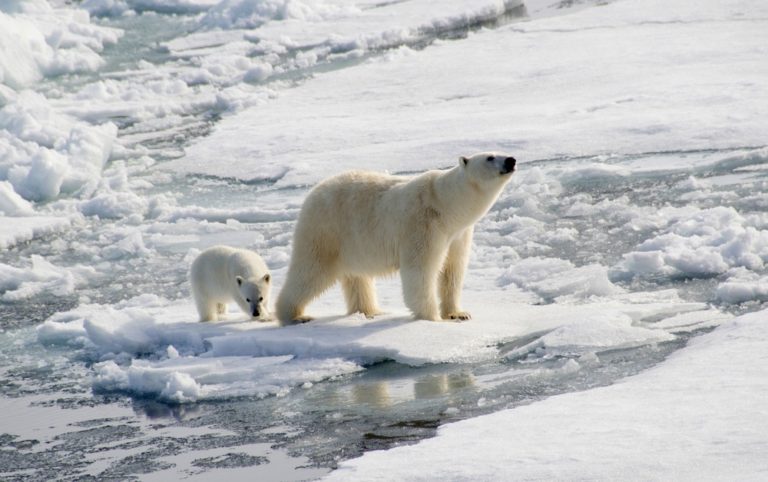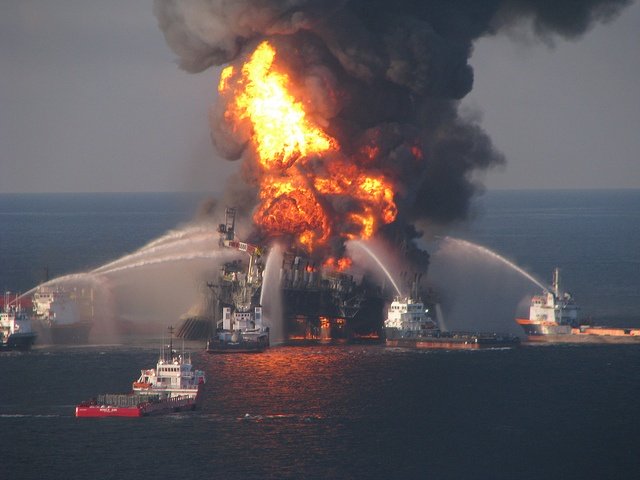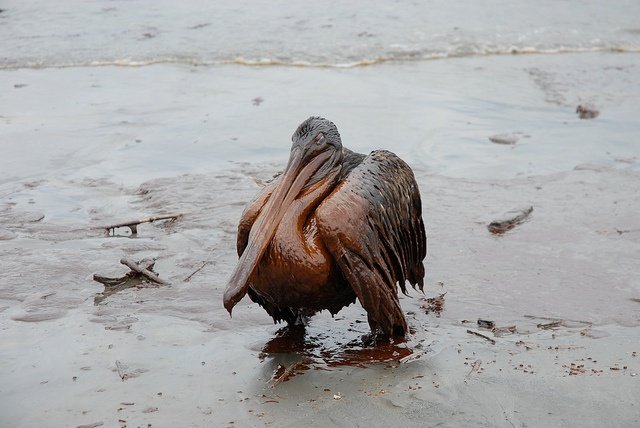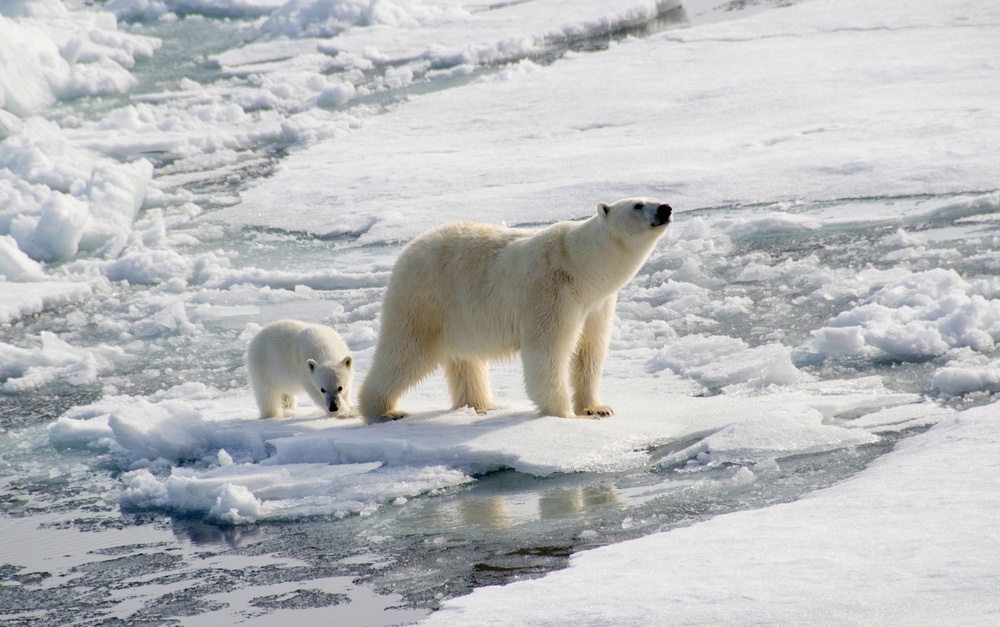
This article was made possible by the readers and supporters of AlterNet.
If the Trump administration gets its way, nearly every coast on the continental United States and Alaska could be put at risk by offshore oil and gas drilling. The Interior Department is accepting public comments until March 9.
Our federal government wants to auction off our oceans, endanger our coasts, and lock our nation into reliance on fossil fuels for at least another half-century.
The Department of Interior’s Bureau of Ocean Energy Management is accepting public comments until March 9 on a proposal to open 98 percent of the United States’ offshore areas that have hydrocarbon potential to oil and gas offshore drilling. If the Trump administration gets its way, nearly every coast on the continental United States and Alaska could be put at risk by offshore oil and gas drilling.
This proposal is being made under a federal law that states that offshore areas belong to the public, and that the federal government must manage these shared resources in a way that best benefits the public.
With this in mind, I ask: How would more offshore drilling benefit you?
If you live in a coastal area, your or your neighbors’ livelihood could be destroyed by a disaster such as the infamous BP Deepwater Horizon or Exxon Valdez oil spills. But fossil fuel extraction on our coasts can have serious detrimental impacts even in the absence of a catastrophic disaster—for example, the Gulf of Mexico is currently plagued by frequent small-scale spills that have long-term impacts on the health of its ecosystems.


Oil and gas companies have proven themselves time and time again to be either incapable or unwilling to make the investments needed to make offshore drilling safe. Similarly, the federal government has proven itself unable or uninterested in properly regulating offshore drilling, or requiring companies to remedy the damage they cause.
In the Gulf of Mexico, Taylor Energy’s oil well site, destroyed during Hurricane Ivan in 2004, still leaks oil today—and is predicted to continue to leak oil for another century. Neither the company nor the federal government seems capable or willing to do what it takes to stop the leak. The Trump Administration’s offshore drilling plan would expose nearly every U.S. coast to similar threats.
If you rely on the resources that our oceans provide, offshore drilling will further endanger the health of our oceans and coastal areas, potentially damaging already struggling fisheries. Or, if you simply appreciate magnificent ecosystems of the ocean and creatures in it and wish to protect and preserve them for future generations, you will need to contend with the fact that offshore drilling, as well as the process used to find oil and gas, seismic airgun blasting, will stress, injure and kill marine mammals and other marine life.
If you live on this planet, you will live with the repercussions of our government’s promotion of a massive expansion of fossil fuel extraction. Because of the time it takes to find oil and gas reserves and build out the infrastructure to extract and transport these fuels, the federal government admits that most of the areas being proposed for drilling would not begin producing oil and gas until a decade from now and will continue producing for nearly a half-century. We know that in order to avoid catastrophic climate change, we need to keep a vast majority of our fossil fuel reserves in the ground.

A government with actual foresight should be pursuing policy changes that promote technological advances and investment in renewable energy, decrease our dependence on oil, and create sustainable, well-paying jobs. Instead, our federal government subsidizes the dangerous and outdated fossil fuel industry, both directly and indirectly. These subsidies, especially in the form of under-regulation, are going to increase under the Trump Administration. Once fossil fuel companies are forced to play on a fair playing field, expanding fossil fuel infrastructure no longer will appear economical. In light of this and the threats of climate change, a federal plan that not only allows, but subsidizes the long-term expansion of fossil fuel infrastructure is not in the best interest of the nation or the planet.
Who, then, does the expansion of offshore drilling benefit?
Presumably, oil and gas companies, though it is unclear if even these companies currently view offshore drilling as a wise investment. Some speculate that this offshore drilling proposal is nothing more than a bungled attempt to deliver on campaign promises and will not result in a significant expansion of drilling. But the Trump Administration has plans underway to try to make offshore drilling more appealing to companies—by scaling back safety requirements.
Yes, you read that correctly. At the same time, the Administration is pushing this massive expansion of offshore drilling, it is also attempting to scale back offshore drilling safety regulations created in response to the disastrous BP Deepwater Horizon spill. The Trump administration would have us believe that offshore drilling is so vital to our energy future that it should be conducted off of nearly every U.S. coast. At the same time, it apparently can only be made economical if the companies are allowed to skimp on safety measures. Whether offering up a drilling free-for-all will succeed in promoting more offshore drilling remains to be seen, but it is a gamble we cannot afford to make.
With this proposal, the Trump Administration is asking us, the public, to put our trust in the federal government and oil and gas companies and potentially allow drilling as close as three miles from nearly all our coasts. Neither the federal government nor oil and gas companies have given us any reason to believe that offshore leasing and drilling will be conducted in a safe and equitable manner. We must not let the Administration put our vibrant coastal communities, our shared ocean resources, and our planet’s climate at risk for the sole benefit of oil and gas companies.
Feature image by curraheeshutter/Shutterstock